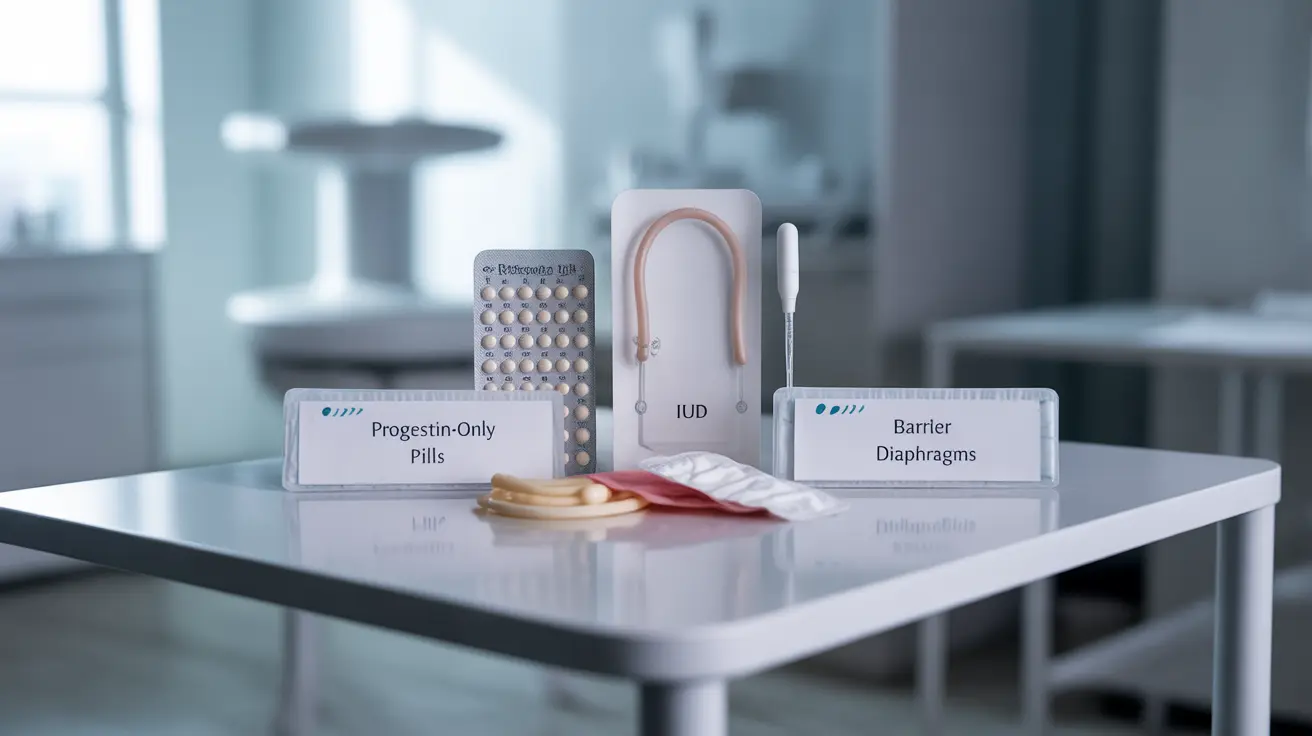For individuals who experience migraines, choosing the right birth control method requires careful consideration. The relationship between hormonal contraceptives and migraines is complex, and finding the best birth control for migraine sufferers involves understanding both the benefits and potential risks of various options.
This comprehensive guide explores safe and effective birth control choices for those who experience migraines, with special attention to options for people who experience migraines with aura, which requires particular care in contraceptive selection.
Understanding Migraines and Birth Control
The connection between hormonal fluctuations and migraines makes choosing appropriate birth control particularly important. Estrogen, a key hormone in many birth control methods, can influence migraine patterns and potentially increase certain health risks for some individuals.
Progestin-Only Birth Control Options
Progestin-only contraceptives are often recommended as a first-line option for migraine sufferers, particularly those who experience migraines with aura. These methods avoid the potential complications associated with estrogen-containing contraceptives.
Progestin-Only Pills (Mini-Pills)
These pills provide effective contraception while typically having minimal impact on migraine patterns. They're taken daily and can be particularly suitable for those who prefer oral contraception but need to avoid estrogen.
Progestin-Only Injectable Methods
Options like Depo-Provera provide long-acting contraception without estrogen. These can be administered every three months and may help stabilize hormone levels.
Non-Hormonal Contraceptive Methods
Non-hormonal options can be excellent choices for migraine sufferers who want to avoid hormonal influences altogether.
Copper IUD
The copper IUD provides long-term, highly effective contraception without any hormones. It's particularly suitable for those who want to avoid any potential hormone-related migraine triggers.
Barrier Methods
Condoms, diaphragms, and other barrier methods offer hormone-free alternatives that don't impact migraine patterns.
Managing Migraines with Hormonal Birth Control
For those who can safely use hormonal methods, certain strategies can help minimize migraine impact:
- Continuous or extended-cycle birth control to reduce hormone fluctuations
- Tracking migraine patterns in relation to hormone cycles
- Working closely with healthcare providers to adjust methods as needed
- Regular monitoring of migraine frequency and severity
Frequently Asked Questions
What are the safest birth control options for people who experience migraines with aura?
The safest options for those with migraines with aura include progestin-only methods (mini-pills, injectable contraceptives, or hormonal IUDs) and non-hormonal methods like the copper IUD. These options avoid the increased stroke risk associated with estrogen-containing contraceptives.
How can I manage migraines while using hormonal birth control?
Managing migraines while using hormonal birth control involves careful monitoring of symptoms, maintaining consistent timing of medication, and possibly using extended or continuous hormone regimens to minimize fluctuations. Regular consultation with healthcare providers is essential for optimizing both migraine management and contraception.
What are the benefits and risks of using progestin-only pills for migraine sufferers?
Benefits of progestin-only pills include effective contraception without estrogen-related risks, potential reduction in menstrual-related migraines, and flexibility in timing. Risks may include irregular bleeding patterns and the need for very consistent daily timing for optimal effectiveness.
Can continuous use of birth control pills help reduce menstrual migraines?
Yes, continuous use of birth control pills can help reduce menstrual migraines by minimizing hormone fluctuations. This approach eliminates the hormone-free interval traditionally associated with oral contraceptives, potentially reducing migraine triggers.
Are nonhormonal birth control methods, such as copper IUDs, effective for preventing migraines?
While copper IUDs don't directly prevent migraines, they provide highly effective contraception without hormonal influence on migraine patterns. This makes them an excellent choice for individuals who want to avoid hormone-related migraine triggers while maintaining reliable birth control.




